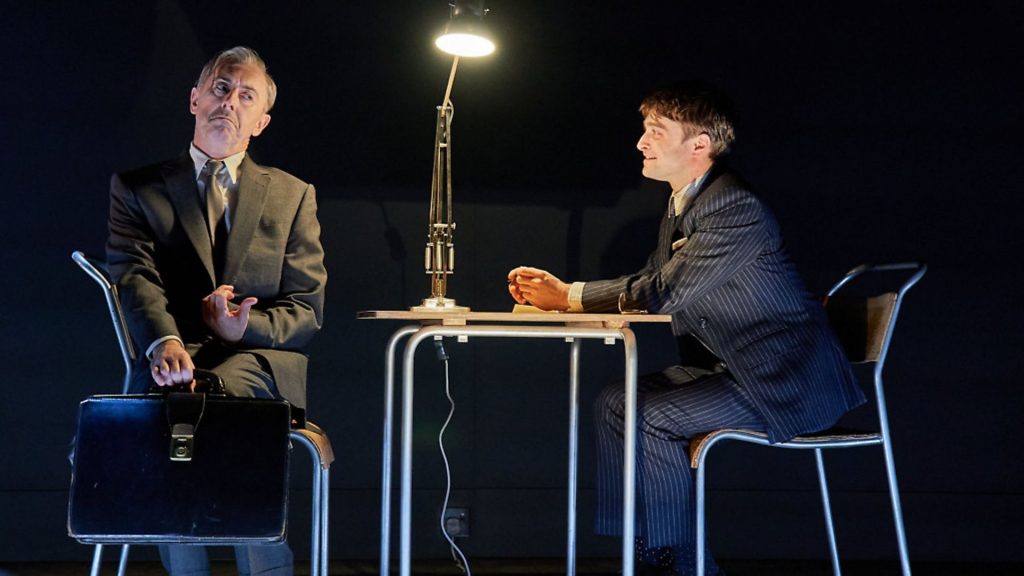
TIM WALKER reviews Endgame/Rough for Theatre II at The Old Vic Theatre, London.

Stephen Unwin, in his excellent book So You Want To Be A Theatre Director?, came as close as anyone to defining what it is to give an effective performance on stage. “The good actor has an easy access to his emotions, and knows how to share them with an audience: his thought processes are clear, and the audience can follow them,” he writes.
“He immerses himself in the part he’s playing, but he also enjoys being watched. He acts with a kind of playful confidence and energy that is infectious. The audience relaxes, because they know the actor is in control.”
Unwin’s words ran through my head as I watched Daniel Radcliffe in the Old Vic’s Samuel Beckett double bill, Rough for Theatre II and Endgame. If I’m honest, I could never entirely relax as I didn’t feel the young actor was ever totally in “control”.
Radcliffe clearly yearns for acceptance as a proper theatre actor, but the problem is his formative years were spent exclusively in front of cameras. He was just 10 when he appeared in a BBC adaptation of David Copperfield, followed by his cinematic debut in 2001’s The Tailor of Panama. At 11, he was cast in the title role of Harry Potter and the Philosopher’s Stone and the ensuing instalments kept him busy for the next decade. When he should have been experiencing real life – the stuff on which every actor draws – he was in a world of make-believe.

There is in both the Beckett works one big star turn and one or more supporting roles. Tellingly, Radcliffe chooses to leave the star turns to Alan Cumming. In the first, Radcliffe plays a plodding official working alongside Cumming as his flamboyant and bequiffed colleague. They are assessing the life of a third character, standing silently on a window ledge, contemplating suicide.
It’s puzzling why the director Richard Jones should have felt the need to kick the evening off with Rough for Theatre II, as it feels like merely a supporting feature that it’s necessary to sit through before getting to the main attraction.
Endgame is a lot more satisfying and it gives Radcliffe a bit more to do, but, once again, he’s no more than a dull factotum to Cumming as his overbearing and this time bald-headed boss, coping with life in a post-apocalyptic world. What laughs Radcliffe manages to elicit are from puerile visual gags: he’s endlessly going up and down ladders (nearly slipping off once) to open curtains in the room that are hung much too high up.
Cumming as ever just plays Cumming and it’s the two unfortunates in dustbins – Karl Johnson as his dad and Jane Horrocks as his mum – that provide the most memorable performances of the evening.
Radcliffe is a disappointment, but top marks to him for having the guts to pick works quite as challenging as these, and for daring to have – in the words of the late Christiaan Barnard – the courage to fail.
Warning: Illegal string offset 'link_id' in /mnt/storage/stage/www/wp-includes/bookmark.php on line 357
Notice: Trying to get property 'link_id' of non-object in /mnt/storage/stage/www/wp-includes/bookmark.php on line 37







